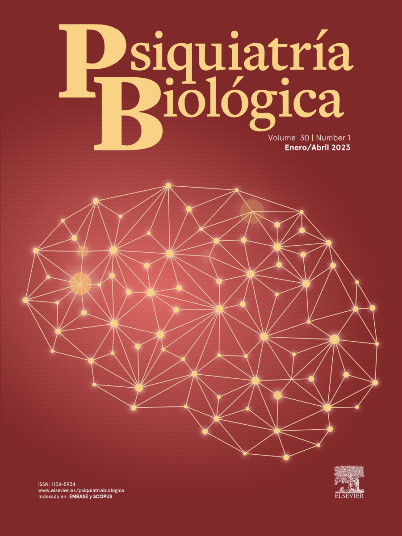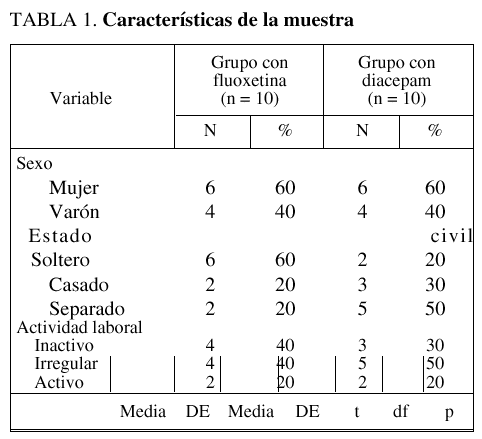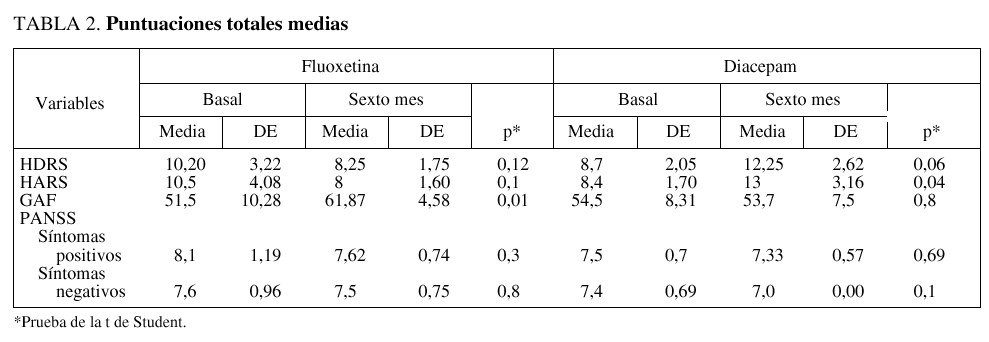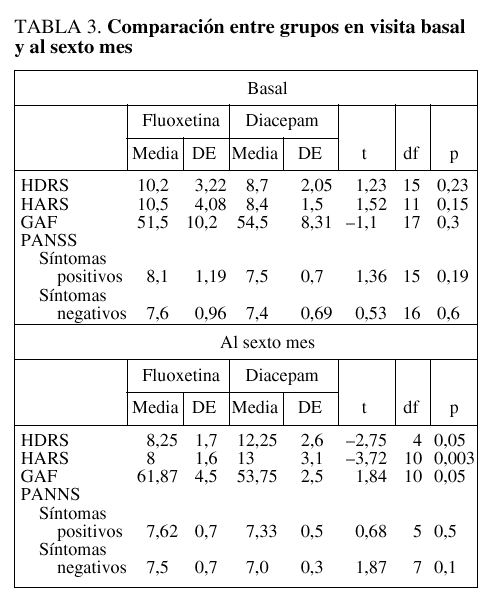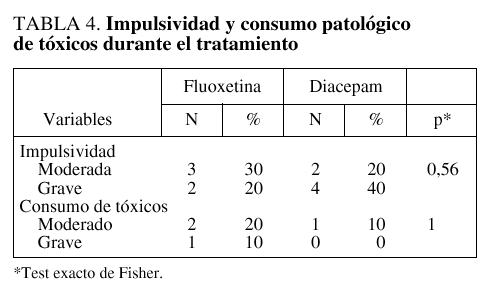Metodología: Veinte pacientes con diagnóstico de TLP según criterios DSM-IV, recibieron tratamiento psicofarmacológico con 40 mg/día de fluoxetina durante 3 meses. A partir de ese momento, los pacientes entraban en un estudio abierto y prospectivo de 6 meses de duración en el que eran asignados de forma consecutiva a 2 posibles grupos de tratamiento: uno con 20 mg de fluoxetina y otro con 5 mg de diacepam. La eficacia fue evaluada mediante las escalas de Hamilton de depresión (HDRS) y ansiedad (HARS), las escalas del síndrome positivo y negativo en la esquizofrenia (PANSS), la escala de evaluación del funcionamiento global (GAF) y por la reducción de las manifestaciones clínicas del TLP.
Resultados: El 80% de los pacientes que recibieron fluoxetina continuaron el tratamiento hasta el final del estudio frente al 40% de los pacientes con diacepam. En ninguno de los casos los abandonos fueron debidos a efectos adversos de la medicación. Se encontraron diferencias significativas entre ambos grupos al final del estudio en las puntuaciones de las escalas HDRS y HARS. Conclusiones: El uso de fluoxetina de forma prolongada podría mejorar el cumplimiento de los programas de tratamiento continuado en los trastornos límite de la personalidad.
Method: Twenty patients with a DSM-IV diagnosis of BPD received treatment with 40 mg/day of fluoxetine during 3 months. Consequently, they entered an open and prospective study of six-month of duration with consecutive assignment to one of two groups of treatment: one with 20 mg of fluoxetine and the other with 5 mg of diacepam. Efficacy was rated with the Hamilton Rating Scales for depression (HDRS) and anxiety (HARS), the Positive and Negative Syndrome Scales for schizophrenia (PANSS) and the Global Assessment of Functioning Scale (GAF).
Results: 80% of patients who received fluoxetine continued treatment up to the end of the study, while only 40% of patients with diacepam did. Dropouts were not attributed to adverse events in any case. Significant differences were found between both groups for HDRS and HARS scores at the end of the study.
Conclusions: Fluoxetine could contribute to treatment of BPD by improving adherence to psychotherapeutic programs in the long run.
Artículo
Comprando el artículo el PDF del mismo podrá ser descargado
Precio 19,34 €
Comprar ahora




